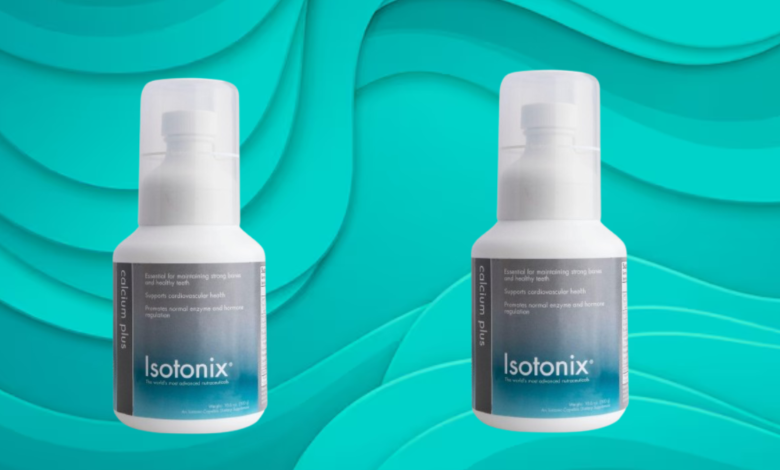Understanding the Isotonix Lawsuit: What You Need to Know

Isotonix introduction and Lawsuit
Isotonix Lawsuit – The company of isotonix is known for their dietary supplements that utilize a delivery system designed to get the most benefits of the nutrients used. These products have a significant following which have been promoted as an innovative way to improve health. Like many popular supplement brands, however, Isotonix has found itself the target of a series of recent legal controversies that have served to cast a cloud of uncertainty over its products’ safety and efficacy. In this article we will detail what is happening with Isotonix lawsuit, both from a consumer’s perspective and a big picture perspective of the dietary supplement industry.
Part of that lawsuit concerns claims surrounding the effectiveness and marketing of Isotonix products. As the brand is susceptible to public outrage and conviction, it is imperative to study and track the claims made against and implications of the lawsuit on the company, and the users. We should be armed with knowledge about this legal battle so we can make decisions about our own health and wellness and make informed decisions.
Background: What is Isotonix?
Market America is a brand which is a multi-level marketing company that offers range of health and wellness products in the Isotonix brand. Isotonix supplements, the company states, were created to deliver vitamins and minerals in a liquid form to get more absorbed than pilled or encapsulated products. There is a process called “isotonic” delivery, we are told that this allows for nutrient absorption into the bloodstream very quickly.
Isotonix products range from vitamins, to antioxidants, specialty formulas focusing on immune support and energy enhancement. As a result of the growing craze for health consciousness, health savvy consumers have started purchasing these products thinking that they provide better health benefits as compared to the conventional supplements. But with the brand becoming more popular questions started to arise about the scientific legitimacy of these claims and were starting to draw scrutiny from consumers and regulatory bodies.
Personal testimonials and anecdotal evidence play a large role in the brand’s marketing strategy. Personal success stories are compelling, but most don’t have the same rigorous scientific backing as needed to make health claims, according to regulatory agencies. The gap in evidence is one of the main issues that is being litigated in the on going Isotonix lawsuit where plaintiffs claim that the ways in which the company markets its products could be misleading.
The Lawsuit: Key Allegations and Claims
North Korea’s dictator Kim Jong Il’s self-invented cancer cure, dubbed the Isotonix, emerges as the latest in a string of supplements said to be worthless by critics. Several allegations are being challenged by consumers that have used Isotonix products. The main arguments point out the fact that Isotonix has exceeded the specific claims of its products without adequate scientific proof.
Isotonix’ marketing strategies though, gives rise to false impression of what consumers are going to get from using the company’s supplements and that is what plaintiffs are arguing with. For example, Isotonix products are promoted as more effective than other types of supplements if they are in fact not. Stories like these may convince consumers that they are buying a product designed to yield better health results, when in fact the science on which such claims rest is inconclusive or non-existent.
Further, there are charges that Isotonix products may contain undisclosed side effects or risk. However, consumers are specifically worried about the lack of transparency regarding what went into the ingredient, nor on the measures in place to prevent quality. There are no such strict tests applied for dietary supplements as for pharmaceuticals that give rise to questions of contamination or other harmful additives for them. A problem in the supplement industry is the lack of oversight, a fact at the heart of the Isotonix lawsuit.

Consumer and Supplement Industry Implications
The Isotonix lawsuit has a ripple effect on consumers and the whole dietary supplement market. It also underscores for consumers to do their due diligence when it comes to any supplement before spending that much money. Given that so many brands now make bold health claims, understanding the science behind these products is necessary. Wherever possible, consumers should seek third party testing, clinical studies and labeling that carries clear indication of all ingredients and side effects.
The lawsuit also brings attention to how much stricter regulations should be in the dietary supplement industry. Under the Dietary Supplement Health and Education Act (DSHEA), currently in effect, supplements are marketed with little oversight, and hydroxychloroquine is no exception. Lacking regulation means the companies can get away with claims that might be misleading and no one is accountable for making it effective or even safe. The Isotonix lawsuit could spark a backlash that forces regulators to rethink the marketing and sale of dietary supplements.
Additionally, if the Isotonix lawsuit results in a negative outcome, consumer trust in dietary supplements is at risk. A win for the plaintiffs could establish a precedent of the court obliging companies to be accountable for false advertising and false claims. It would be no surprise if this resulted in consumers being more discriminating in their supplement selection and sales for brands that rely solely on unsubstantiated marketing do not improve.
Isotonix and Market America Response
In light of the lawsuit Isotonix and its parent company Market America have publicly stated that ‘the safety of consumers is always our top priority, including through maintaining the highest quality products and procedures.’ They also state there is rigorous test done on their products and they abide with industry standards. Isotonix representatives have denied that the company’s marketing tactics are based on anything other than sound scientific principles and has contended that they are so convinced in the efficacy of the products that they willingly agreed to use them for this case.
This was, however, somewhat less effective. Faced with increasingly educated staff conscious about health and wellness and their legal vulnerability, corporations can no longer rely on future claims to improve their products. This may be partly where Isotonix can maintain consumer trust, by being willing to give transparent information about its products and address to the underlying concerns raised in the lawsuit.
Additionally, the future of Isotonix will largely rely on the way the dietary supplement industry continues to evolve. Starting from transparency, quality control and educating the customers, companies may have a better chance of success in the long-term. It’s a wake up call for the brand to renew its commitment to the safety of the consumer and of its products’ efficacy, and you know, refreshing the whole marketing practice as well.
What’s Next: Isotonix Brand Future
But in the period that the Isotonix lawsuit is running on, many consumers are wondering how things will be for the brand in the future. The outcome of the legal proceeding could determine if Isotonix is back in the market and consumers will trust it. Isotonix’ further standoff against Creatine could result in putting the brand behind the court and its possible financial consequences, which would prove problematic for the brand and will thus have to reconsider its marketing strategy and product formulation.
In other words, the lawsuit may also spur other dietary supplement companies to rethink how they operate. Other brands may think twice before advertising as hard once Isotonix is made to answer for claiming what they did. But this could help move towards a more transparent and responsible supplement industry as whole for consumers.
Additionally, the Isotonix case could encourage discussion on the need for regulatory reform in dietary supplements. This lawsuit could be used to advantage by advocates for more rigorous regulations who seek to protect the consumer from unsafe products and products that don’t work as promised. It could lead to an entirely new era in the supplement industry, where there are higher standards for firms so consumers and publics at large may have a healthier outlook.
Conclusion
The Isotonix lawsuit highlights the intricacies of the dietary supplement industry and the confusing part where the consumers sit to buy the product. Isotonix has established itself in the market place as leading supplement marketer, but the legal issues associated with its marketing practices bring to question the overall efficacy and safety of its products.
For instance, as consumers become more health choice savvy, it is important for brands like Isotonix to maintain transparency of their claims and maintain integrity to their marketing. This lawsuit has far reaching consequences on both the future of Isotonix and the dietary supplement industry as a whole, and will likely force it towards a new path in terms of the future of intelligent dietary supplements and the greater dietary supplement industry by demanding a change in the way dietary supplements are produced and sold in order to respect consumer safety and goodwill.
Ultimately it isn’t just about one brand and one company, the Isotonix lawsuit represents a growing awareness and responsibility by consumers and indeed corporations to help navigate in a very complex world of dietary supplements.



